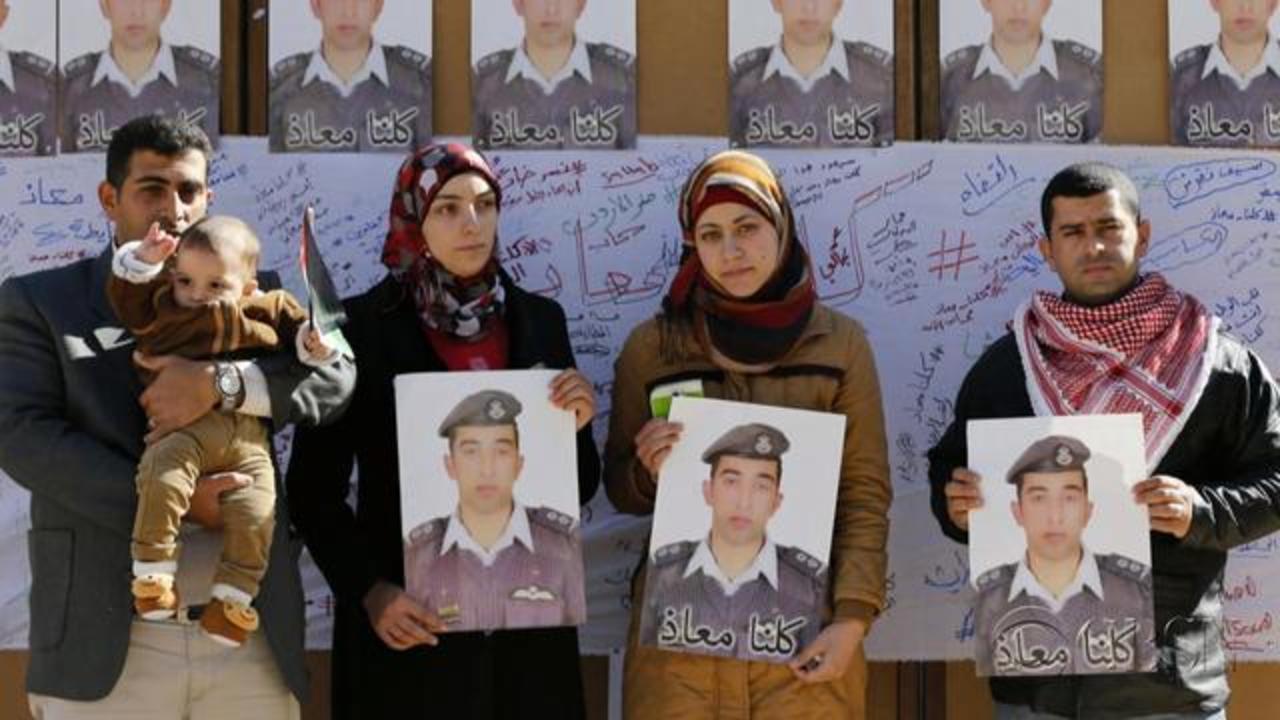In 2015, the world witnessed an act of brutality that stunned nations and galvanized a global response. Muʿādh Sāfī Yūsif al-Kasāsba, a brave Jordanian pilot, became a symbol of both tragedy and heroism when he was captured and executed by ISIS. His story is one of sacrifice, determination, and an unwavering commitment to his country and ideals. This article delves into his life, the circumstances of his capture, and the lasting impact of his legacy.
Early Life
Muʿādh Sāfī Yūsif al-Kasāsba was born on May 29, 1988, in the town of Karak, Jordan. From a young age, he exhibited a strong sense of duty and patriotism, values deeply instilled in him by his family. His upbringing in a military-oriented environment shaped his future aspirations. Al-Kasāsba was determined to serve his country and sought to do so through a career in the Jordanian Air Force.
After completing his education, Muʿādh joined the Royal Jordanian Air Force, where his commitment and dedication quickly became apparent. Known for his keen intelligence, technical skills, and calm demeanor, he earned the rank of lieutenant. His dream of flying military aircraft and defending his homeland became a reality, and he carried out his duties with honor and pride.
The Fight Against ISIS
In 2014, as part of an international coalition, Jordan joined efforts to combat ISIS, a terrorist organization that had rapidly gained control over large parts of Iraq and Syria. The extremist group’s reign of terror was marked by violent executions, mass atrocities, and a campaign of fear that spread across the globe. Jordan, a neighboring country, became an active participant in the military campaign to contain and defeat ISIS.
As a pilot, Muʿādh was called to action. He flew missions over Syria as part of Operation Inherent Resolve, targeting ISIS strongholds and aiding ground forces. His role in these operations was crucial, and like many others in the coalition, he faced great risks every time he took to the skies.
Capture
On December 24, 2014, while flying a mission over northern Syria, Muʿādh’s F-16 fighter jet was hit, forcing him to eject. The exact cause of the crash remains debated, but what is known is that Muʿādh survived the crash and was immediately captured by ISIS forces. This marked the beginning of a devastating ordeal, not just for Muʿādh but for the entire world as his fate became the subject of international attention.
ISIS, known for its brutal tactics, wasted no time in publicizing Muʿādh’s capture. Photos and videos of the pilot in captivity surfaced, raising concerns over his treatment and safety. For weeks, negotiations and diplomatic efforts were made to secure his release, but they ultimately proved futile.
Execution
In February 2015, the world was horrified to learn of Muʿādh’s execution in one of the most barbaric displays of cruelty. ISIS released a video showing the young pilot being burned alive in a cage, a move that was meant to instill fear and send a message to the international community. Instead, it sparked widespread outrage and condemnation.
Jordan, in response, vowed to retaliate against ISIS. The Jordanian government swiftly executed two ISIS-affiliated prisoners, including Sajida al-Rishawi, whose release had been demanded by ISIS in exchange for Muʿādh. Jordan’s King Abdullah II promised that Muʿādh’s death would not be in vain, and the country intensified its efforts in the fight against ISIS, conducting numerous airstrikes on ISIS targets in Syria and Iraq.
Aftermath
Muʿādh Sāfī Yūsif al-Kasāsba’s death became a rallying point for Jordanians and people worldwide. His execution highlighted the brutality of ISIS, leading to increased international efforts to combat the terrorist group. While the world mourned his loss, Muʿādh became a symbol of resistance against extremism.
His legacy continues to resonate in Jordan, where he is remembered as a hero. His sacrifice highlighted the importance of unity in the face of terrorism and reinforced the resolve of those who stand against radical ideologies. Muʿādh’s family, including his father, Yūsif al-Kasāsba, has spoken out about their son’s legacy, calling for continued efforts to combat extremism and honor the memory of those who have given their lives in the fight against terrorism.
Legacy
Muʿādh’s story is one of profound courage and dedication. While his life was tragically cut short, his legacy endures in the hearts of many. He became a symbol not only for Jordanians but for all those fighting for freedom and justice in the face of terrorism. His sacrifice reinforced the importance of standing up to tyranny and refusing to bow to fear.
For Jordan, Muʿādh’s death served as a catalyst for greater national unity. The country came together in mourning and in anger, with citizens standing firmly behind their government’s actions to avenge their fallen hero. The incident also brought attention to the plight of other prisoners held by ISIS, drawing further condemnation of the group’s tactics.
A Call for Justice
Muʿādh Sāfī Yūsif al-Kasāsba’s execution sparked outrage around the world, but it also reinforced the need for justice. His death highlighted the indiscriminate violence and suffering caused by extremist groups like ISIS, and it underscored the importance of continuing the fight against terrorism.
Jordan, with its strong military presence, played a crucial role in combating ISIS, and Muʿādh’s sacrifice served as a reminder of the cost of this fight. His death was not in vain, as it inspired further resolve to eliminate the threat posed by extremism.
Conclusion
Muʿādh Sāfī Yūsif al-Kasāsba will forever be remembered as a brave pilot, a son of Jordan, and a martyr for a cause that transcends borders. His story reminds us of the power of courage and the importance of standing up to tyranny. While his life was tragically taken, his legacy will continue to inspire future generations to fight for justice, freedom, and peace.

